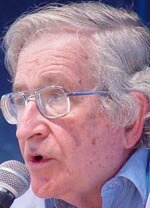Sygmunt Bauman: “Israel does not see the missiles falling on communities along the border as a bad thing. On the contrary, they would be worried and even alarmed were it not for this fire.”
Israel
While certainly factors besides the mounting pressure on Agrexco from the BDS movement were at work here, the movement has made an impact on the Israeli economy.
Whenever a conflict between democracy and Jewish values arises, the new definition of Israel would allow courts and legislators to favour the latter. The proposed bill will also make halacha, Jewish religious law, “a source of inspiration to the legislature and the courts”. And, in the spirit of favouring the Jewish character of the state over a state for all its citizens, the legislation would also downgrade Arabic from an official language to one with “special status”.
Someone in the wild Sinai peninsula took a decision and sent a big, well equipped squad to infiltrate across the border into the Israeli Negev, attack buses and cars and engage in running battles with soldiers and shoot and kill and kill indiscriminately. And presto, in one minute the agenda changed and the public mood changed into a state of emergency and war at the gate and in all communications media there was no more talk of social protests, nothing but terrorism and army and security issues.
Saturday saw the largest demonstration in Israel’s history in Tel Aviv, Jerusalem, and other cities. Hundreds of thousands of Israelis poured onto the streets to demonstrate against the high housing prices and rising costs of commodities. Meanwhile Israel’s Palestinian citizens who make up 20% of the population join the movement that began on July 14th and became known as J14.
As the movement grows, some will continue to think and demand “justice” within the borders of one nation, at the expense of the other nation that lives in this land. Others will understand that this will never be a country of justice and welfare if it is not a state of all its citizens.
Yasmin Dahr and Eilat Maoz put Israel’s July 14 Movement in its proper historical, social, and political context – something the protest movement’s loosely structured leadership has, so far, insisted on avoiding. Important analysis. (HEBREW)
Nurit Peled-Elhanan: “People don’t really know what their children are reading in textbooks. One question that bothers many people is how do you explain the cruel behaviour of Israeli soldiers towards Palestinians, an indifference to human suffering, the inflicting of suffering. People ask how can these nice Jewish boys and girls become monsters once they put on a uniform. I think the major reason for that is education. So I wanted to see how school books represent Palestinians.”
On July 14th, eight Israeli students set up tents in the heart of Tel Aviv. Within days they were joined by hundreds of tents, and tent cities sprung up throughout the country. This movement, which became known as “July 14th” saw dozens of direct actions such as blockading the entrance to the Israeli parliament and massive protests with tens of thousands on the streets of Tel Aviv and nine other cities.
Unprecedented ruling states that Migron must be razed by April 2012; Israeli government had admitted outpost was built on lands belonging to Palestinians, but has thus far failed to dismantle it.
I hope that the activists in the Arab countries, especially in Egypt, will realise their vital and deep influence on the Israelis’ motivation to protest.
The time has come to stick their hand in the fire and fight for all the issues they have steered clear of so far – the security budget, the settlements, the occupation, the breaches of democracy and the rule of capital, without which no real rectification can be made, not even in the cost of rent.
Israeli authorities are suing residents of a makeshift Bedouin village for the cost of repeatedly evicting them and razing “illegal structures” where they live, an official said on Wednesday… An Israeli non-governmental group, Bedouin-Jewish Justice, reported in March that the homes there had been destroyed and rebuilt 21 times since July 2010.
IOA Editor: Dispossession neoliberal-style where the victim is charged for his oppressor’s operating expenses.
For Israel’s housing protest to succeed, it must be defined as political – and it must be translated into political acts. The issues it raises must be placed at the center of Israel’s democratic life. The argument over who gets what must find expression within political parties and elections.
IOA Editor: This domestic Israeli (Jewish and largely middle-class) housing campaign is rapidly spreading and may well threaten the stability of Netanyahu’s government.
However, so far, demonstration activists and their leaders have dealt with the housing crisis outside of any political context. They didn’t discuss the dramatic discrepancy between Israel’s domestic and West Bank housing development policies, let alone make the connection between Israeli governments’ (past and present) high priory for settlement construction and low priority for domestic development – both designed to increase the size of the settlement population. Similarly, they didn’t include Israeli Palestinians — whose community has suffered a far greater housing shortage for decades — in their national campaign.
This ‘missing’ context is a true reflection of the extent of this Israeli-Jewish struggle. It is also likely to constrain the significance of any ‘success’ resulting from this campaign.
Six governments preferred to encourage Israelis to go and live on settlements rather than in the periphery of the country. This had a critical effect on the level of supply in various regions, and therefore on the prices of real estate.
Transportation Minister Yisrael Katz confirmed Monday that the state subsidizes bus tickets within West Bank settlements, causing them to be cheaper than tickets for rides within the Green Line.
IOA Editor: Transportation options and costs are an integral part of household location decisions. Therefore, public transportation subsidies to Jewish residents of illegal West Bank settlements, which reduce the cost of living in the West Bank compared to pre-1967 Israel, constitute yet another incentive for Israelis to become settlers.
On 11 July 2011, the Knesset plenum passed the Anti-Boycott Law, which enables the filing of civil lawsuits against those who call for a boycott of the State of Israel or any of its territories (e.g. Israeli settlements). Following the final approval of this law, ACRI has prepared a Q&A document, to explain the legal implications of this law.
We could get in trouble for this. Not in New York City, where this editorial is being written, because legitimate comment is protected under the First Amendment. But our editorials, along with many other stories and columns in the Forward, also appear every Sunday in the English edition of the Haaretz newspaper in Israel. And now, with a new anti-boycott law approved by the Knesset and due to take effect in less than 90 days, the boundaries of free speech and legitimate expression have grown unpredictably and suffocatingly tight.
Ms Zoabi, a vociferous critic of Israeli policies towards the Palestinians, was a passenger on the Mavi Marmara, attracting fury in Israel. She was branded a traitor by colleagues and stripped of some parliamentary privileges… The Knesset’s ethics committee voted to bar Ms Zoabi from parliamentary debates until the current session ends next month, declaring that her actions had “harmed national security and were inconsistent with the legitimate conduct of a lawmaker”.
On July 11th the Israeli parliament passed the controversial anti-boycott law. The law was written in response to the mounting global movement of Boycott, Divestment, and Sanctions (BDS) against Israel and profits from its settlements and industry in the occupied West Bank. The Boycott movement began as a mass Palestinian civil society call, and has been supported from the beginning by some Israelis. The new law bans publicly calling for a boycott, classifying it a civil wrong.























